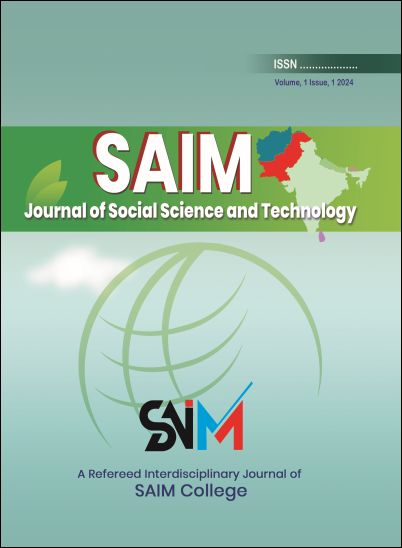Greenwashing and Green Purchase Behavior in Kathmandu Valley: A Moderation Analysis
Keywords:
green purchase, greenwashing, moderating role, receptivity, green advertisingAbstract
Purpose: This paper examines how greenwashing understanding (GWU) moderates the relationships between green purchase behaviour (GPB) and its drivers: receptivity to green advertising (RGC), environmental consciousness (EC), and personal norms (PNS) among consumers in Kathmandu Valley.
Design/Methodology/Approach: We administered a set of structured questionnaires and interviewed purposively selected 224 respondents with a preexisting understanding of the green concept. We then estimated partial least squares structural equation model (PLS-SEM) coefficients to test the hypotheses.
Findings: This paper highlights that RGC, EC, and PNS influence GPB. However, GWU does not moderate the relationship between GPB and its antecedents.
Research Limitations/Implications: This study's findings offer valuable insights for firms, managers, and consumers. They provide significant information regarding consumer awareness, perceptions of green products, and the factors influencing green consumption behaviour. Marketing managers can leverage these insights to enhance their strategies for effectively promoting green and sustainable products.
Originality/Value: To the best of the authors’ knowledge, this article represents the first empirical study to explore the concept of greenwashing understanding and its moderating impact on the relationship between GPB and its antecedents in Nepal, particularly in the Kathmandu Valley. While greenwashing has been extensively researched in various countries, no prior studies have examined this phenomenon within the Nepalese context, utilizing the Theory of Planned Behavior (TPB), Stimulus-Organism-Response (S-O-R) model, and Attitude-Behavior- Context (ABC) theory as foundational frameworks.
Downloads
Downloads
Published
How to Cite
Issue
Section
License
Copyright (c) 2024 The Author(s)

This work is licensed under a Creative Commons Attribution-NonCommercial 4.0 International License.
This license enables reusers to distribute, remix, adapt, and build upon the material in any medium or format for noncommercial purposes only, and only so long as attribution is given to the creator.




